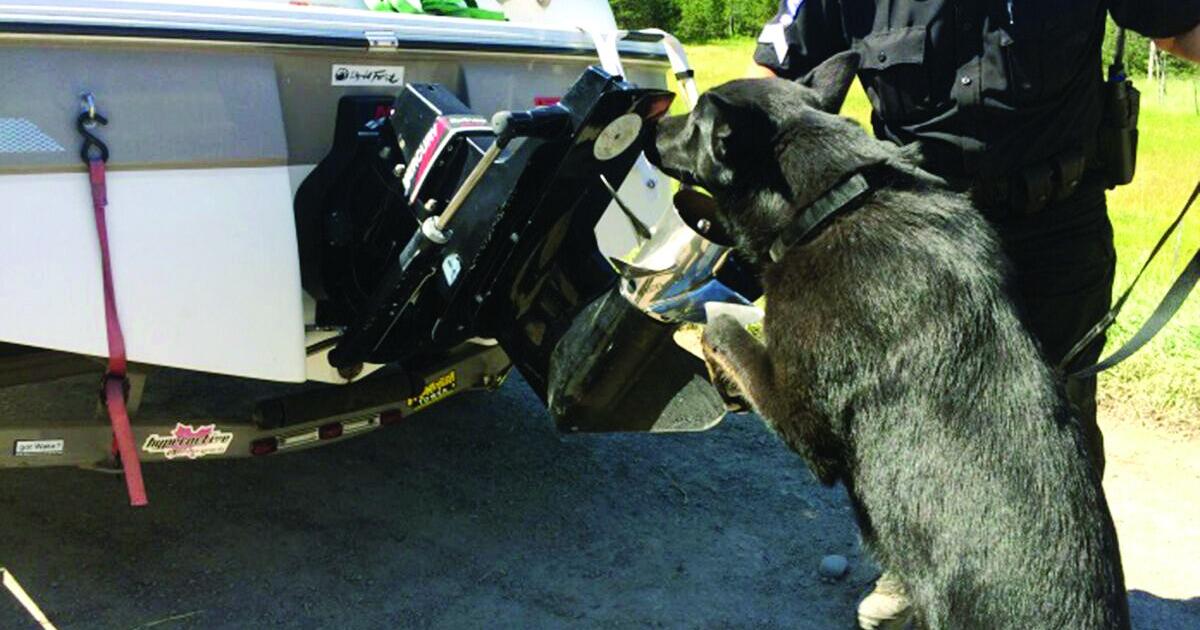Boats being towed into B.C. might one day be swabbed to determine whether the vessel has been in water infested with invasive mussels.
A proposal for a new DNA testing system at border inspection systems is being reviewed by directors of the Okanagan Basin Water Board. The goal is to detect the presence of zebra and quagga mussels much faster than is currently possible with sniffer dogs.
“If successful, this approach could provide inspections that are just as reliable as canine detection, but at a fraction of the cost,” reads part of a recent OBWB document.
“This project will create a protocol to collect samples at inspection stations, process them in a mobile lab, and identify mussel DNA exposure within minutes,” OBWB chief operating officer James Littley writes in a report to be considered on Tuesday by the agency’s board of directors.
If invasive mussels ever become established in B.C. they could foul beaches, damage infrastructure, and upset aquatic ecosystems. Currently, some boats being towed into B.C. are examined for mussels at various border inspection stations.
Michael Russello, a professor at UBC Okanagan’s Conservation Genomics Lab, has proposed a new approach using DNA testing of surface swabs and water samples collected from boats. “The new tool would make it possible to test boats and water samples on-site, providing accurate results within minutes at low cost,” the OBWB document states.
Researchers from other institutions such as University of California Davis and Queen’s University in Kingston, Ont., would also be involved in a study to determine the viability of the approach. Cost of the two-year study is estimated to be about $500,000.
The OBWB board, made up of local politicians from throughout the Valley, will decide Tuesday whether to contribute $200,000 to the project.
Littley recommends the board support the initiative as a prudent and worthwhile investment.
“The cost of an invasive mussel infestation in B.C. would be measured in billions of dollars in damages to infrastructure, ecosystems, and the economy,” Littley writes in a report to the board.
“This project represents a unique opportunity to transform invasive mussel prevention by providing real-time results at inspection stations, not just in B.C., but throughout the Pacific Northwest,” Littley says.
If the board endorses the project, the hope is the additional necessary funding would be secured from other levels of government and industry.
